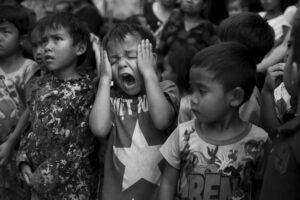In the midst of the digital revolution, traditional modes of education are undergoing a profound transformation globally. South Africa, a nation rich in cultural diversity and striving for educational equity, stands at the forefront of this paradigm shift. With the advent of online schooling, the landscape of education is rapidly evolving, presenting both opportunities and challenges for learners, educators, and policymakers alike. In this blog, we delve into the viability of online schooling in South Africa, examining its potential to revolutionize education and foster inclusive learning environments.
The Promise of Online Schooling
Online schooling holds immense promise in addressing the pressing educational needs of South Africa. In a country where access to quality education remains a challenge for many due to geographical barriers, economic disparities, and insufficient infrastructure, online schooling offers a ray of hope. By leveraging digital technologies, students can transcend physical limitations and access high-quality educational resources from anywhere with an internet connection.
Moreover, online schooling in South Africa has the potential to democratize education by providing equitable opportunities for learners from diverse socio-economic backgrounds. Through open-access online platforms and digital resources, students from rural areas and underserved communities can bridge the gap in educational attainment, empowering them to unlock their full potential and pursue academic excellence.
Additionally, online schooling offers flexibility and personalized learning experiences, catering to the unique needs and learning styles of individual students. With asynchronous learning modules, students can progress at their own pace, ensuring mastery of concepts before advancing to the next level. This tailored approach fosters a supportive learning environment where students feel empowered and engaged in their educational journey.
Furthermore, online schooling facilitates collaboration and global connectivity, enabling students to interact with peers and educators beyond geographical boundaries. Through virtual classrooms and online forums, students can engage in cross-cultural exchanges, broaden their perspectives, and cultivate essential 21st-century skills such as communication, collaboration, and digital literacy.
Challenges and Considerations
Despite its potential benefits, online schooling in South Africa is not without its challenges and considerations. One of the foremost concerns is the digital divide, whereby disparities in access to technology and internet connectivity exacerbate educational inequalities. In remote and marginalized communities, limited infrastructure and resources hinder students’ ability to participate in online learning effectively. Bridging this digital divide requires concerted efforts from government, private sector stakeholders, and civil society to ensure equitable access to digital devices and reliable internet connectivity for all students.
Furthermore, the quality of online education must be rigorously upheld to ensure academic standards and learning outcomes are met. Effective teacher training and professional development are essential to equip educators with the necessary pedagogical skills and digital competencies to facilitate engaging and impactful online learning experiences. Additionally, robust monitoring and evaluation mechanisms are needed to assess the effectiveness of online schooling and identify areas for improvement.
Moreover, concerns regarding social isolation and digital fatigue warrant attention in the online learning environment. Without face-to-face interactions and social engagement, students may experience feelings of loneliness and disconnection, impacting their overall well-being and academic performance. Educators must implement strategies to foster a sense of community and belonging in the virtual classroom, such as group projects, peer collaboration, and virtual extracurricular activities.
Policy Implications and Future Directions
As South Africa navigates the transition towards online schooling, policymakers play a pivotal role in shaping the future of education in the digital age. It is imperative to develop comprehensive policies and regulatory frameworks that promote equitable access to online education, address infrastructural challenges, and safeguard the quality and integrity of online learning.
Furthermore, investments in digital infrastructure and technology-enabled learning tools are essential to create an enabling environment for online schooling to thrive. Public-private partnerships can play a crucial role in leveraging resources and expertise to expand access to digital devices, internet connectivity, and educational content in underserved communities.
Additionally, collaboration between government, academia, and industry stakeholders is paramount in driving innovation and best practices in online education. By fostering a culture of innovation and knowledge-sharing, South Africa can harness the transformative power of technology to enhance teaching and learning outcomes across the education system.
Looking ahead, the journey towards realising the full potential of online schooling in South Africa requires collective action and a commitment to educational equity and excellence. By embracing digital technologies and innovative pedagogies, we can create inclusive learning environments that empower every learner to succeed and thrive in the digital age.
Conclusion
In conclusion, online schooling in South Africa holds immense promise in revolutionising education in South Africa, offering opportunities for equitable access, personalized learning, and global connectivity. However, addressing challenges such as the digital divide and ensuring the quality of online education are essential for realising this potential. Through collaborative efforts and strategic investments, South Africa can unlock the transformative power of online schooling and pave the way for a brighter future for generations to come. Visit Open Minds Campus to further explore the future of schooling.



